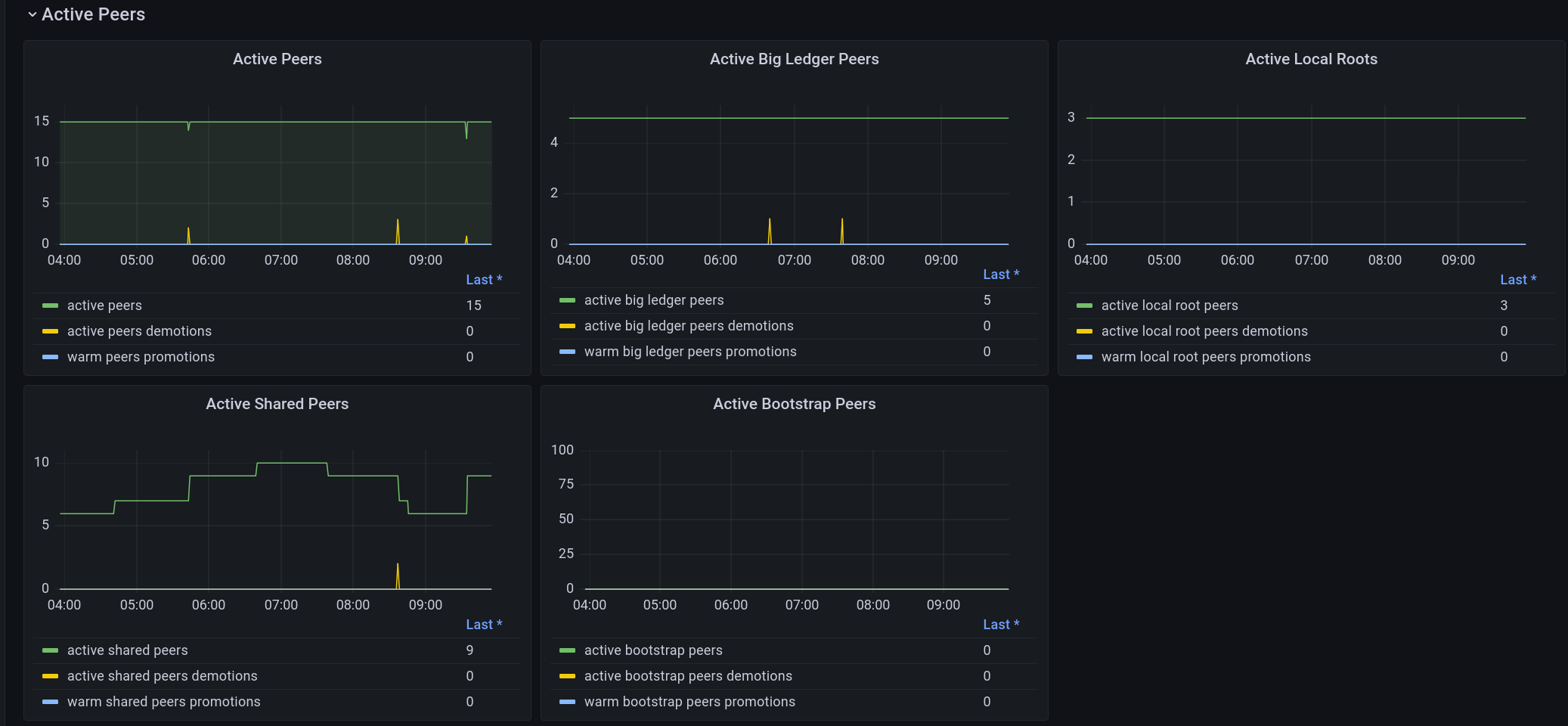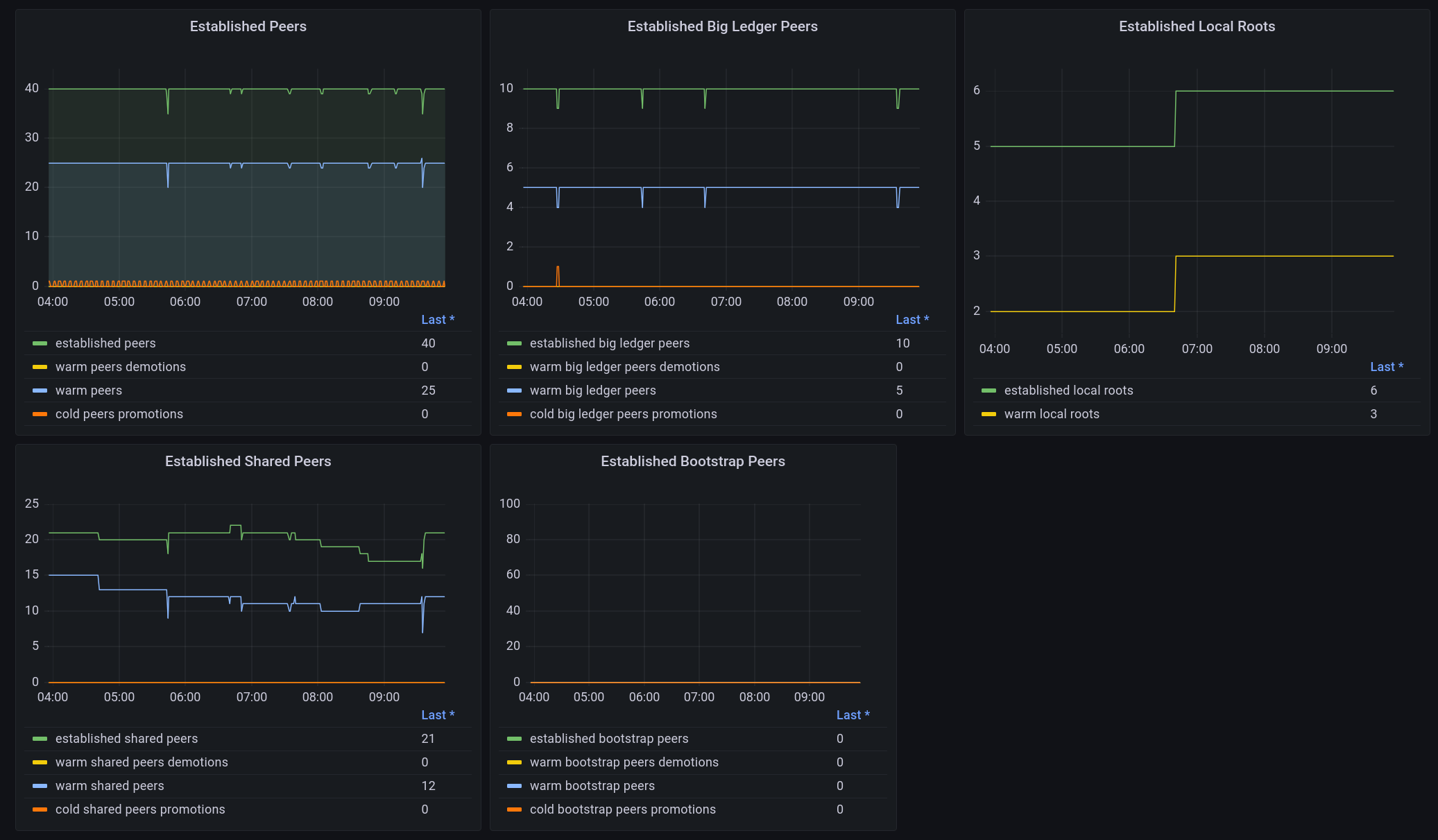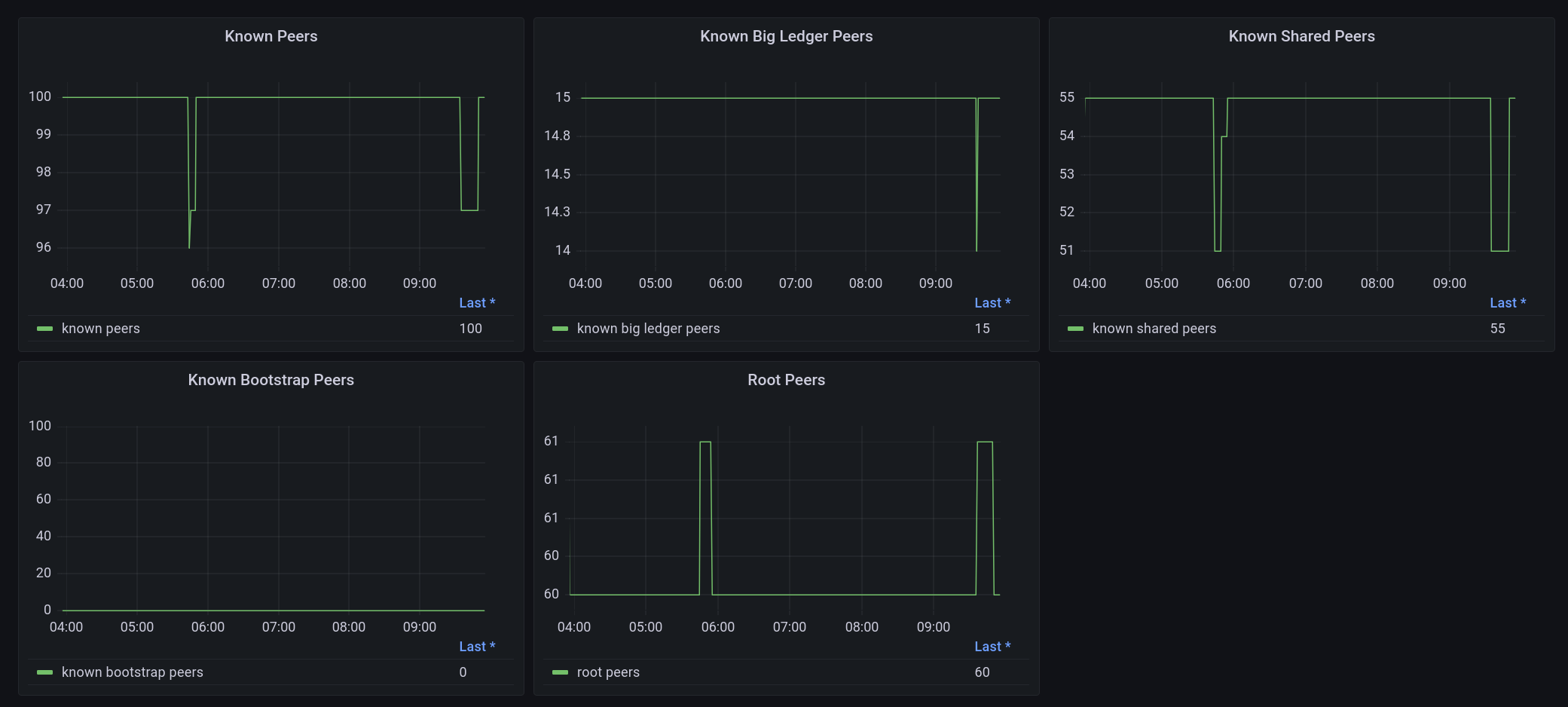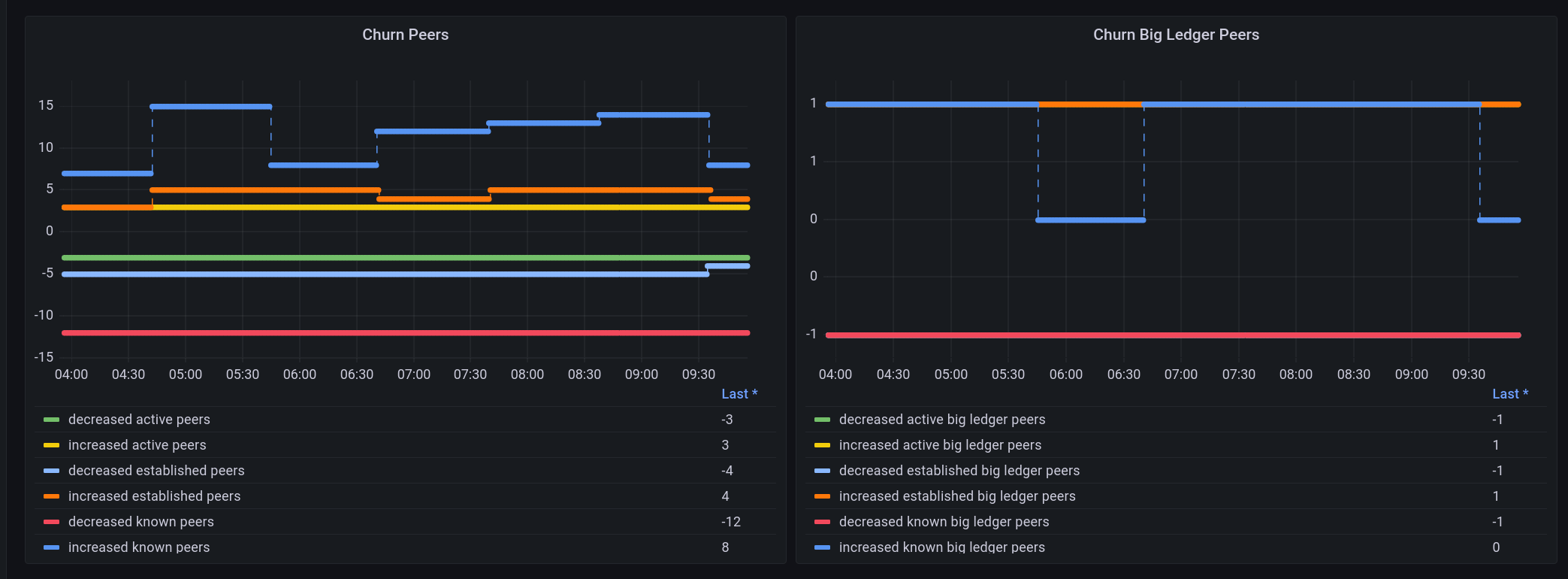Releases
We released cardano-node-8.9.1, and we tagged a soon to be released
cardano-node-8.9.2
The 8.9.2 release will have a fixed peer sharing support, which we
incidentally broke in 8.9.1. We expanded our test suite to cover discovered
bugs (see below for more details). Please also see the release
tab in our project to see which PRs / issues were
included in a given release, the following mapping might also be useful:
ouroboros-network-0.13.1.0 -> cardano-node-8.9.1ouroboros-entwork-0.14.0.0 -> cardano-node-8.9.2
Genesis
We continued working on network Genesis support:
- ouroboros-network#3396 - churn policy for Genesis;
- ouroboros-network#4813 - outbound governor support for Genesis;
- support for
cardano-cli to write a big ledger peers snapshot to disk and
for cardano-node to pass it to ouroboros-network.
As well as a feature required by consensus:
TxSubmission
Only a little progress was made due to one of us being on vacation.
Churn and EKG metrics
While working on ouroboros-network#4815, we addressed technical debt
in churn. The PR removes implicit synchronisation (in terms of delays) in
favour of explicit synchronisation with the outbound governor. The PR extends
EKG counters traced by the node. See below for some graphs.
Documentation
We updated the documentation on peer sharing, see
cardano-node-wiki#44.
Low level details
Peer Sharing Testing
We wrote a testing scenario for peer sharing, which simulates a node setup:
A -> B <- C, where neither of the nodes B and C have any local roots; they only learn about other nodes through (light) peer sharing. B learns
about A and C because they connect to it, while C should learn about A
through peer sharing. This test scenario should prevent us from breaking peer sharing in the
future in some obvious ways. In the future, we will also work on extending our
test suite with peer sharing in mind. See ouroboros-network#4839,
ouroboros-network#4841.
EKG / Prometheus Counters
Note that this is in progress, so some things might still change.
We will provide counters for active (also known as hot) peers,
established (e.g. hot & warm) peers and known (e.g. hot, warm and
cold) peers. This is the same way one specifies targets in the node's
configuration. In addition, the three groups are split into five categories:
- ledger peers
- big ledger peers
- local root peers
- bootstrap peers
- shared peers
In addition, we also provide a counter for root peers, which counts ledger peers,
big ledger peers, local roots and bootstrap peers, which correspond to the
root peers target TargetNumberOfRootPeers in the configuration.
We also provide counters for ongoing promotions and demotions.
Ledger peers are affected by TargetNumberOf{Known,Established,Active}Peers and TargetNumberOfRootPeers.
The gap between TargetNumberOfRootPeers and TargetNumberOfKnownPeers will
be filled either with ledger peers or peers, which the node discovered through
peer sharing.
Big ledger peers are affected by TargetNumberOf{Known,Established,Active}BigLedgerPeers.
Below are some Grafana graphs from an experimental cardano-node branch:
Deprecation policy
The previous hot, warm / cold EKG counters will also be available,
although deprecated after the new ones are released. Sometime in the future
they will be removed.
Grafana graphs
The screenshots are from a node, which is configured without any bootstrap
peers, which is why all bootstrap metrics are 0. The node is configured with the following targets:
"TargetNumberOfRootPeers": 60,
"TargetNumberOfKnownPeers": 100,
"TargetNumberOfEstablishedPeers": 40,
"TargetNumberOfActivePeers": 15,
"TargetNumberOfKnownBigLedgerPeers": 15,
"TargetNumberOfEstablishedBigLedgerPeers": 10,
"TargetNumberOfActiveBigLedgerPeers": 5,
and has a small number of local root peers and one peer in its publicRoots
configuration.
Active Peers Metrics

Established Peers Metrics

Known Peers Metrics

Churn Metrics









